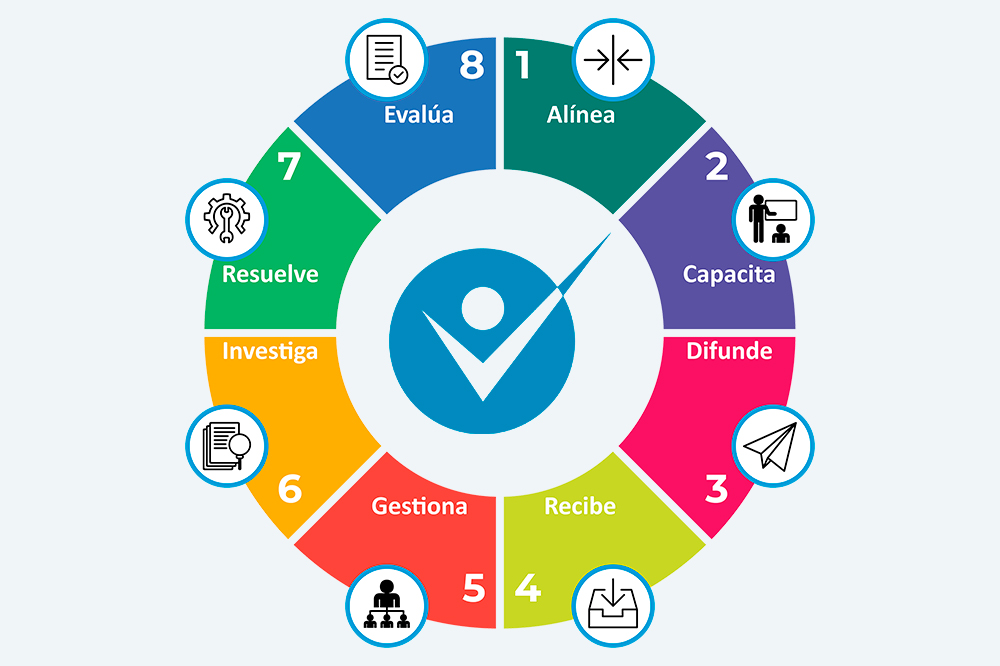Ethics line: what is and how working? is the most important question for organizations that have a sense of corporate ethics and compliance.
Ethics line: what is and evolution
In the past, corporate ethical lines in the U.S. have been largely unregulated. Companies have operated with relatively little oversight, and have often engaged in questionable practices in pursuit of profits. This has resulted in a number of scandals that have cost companies and their stakeholders dearly.
In recent years, however, there has been a shift towards greater corporate responsibility and accountability. Companies are now expected to adhere to a higher standard of ethical conduct, and any violations of these standards can result in severe consequences. The Sarbanes-Oxley Act of 2002 is a prime example of this shift, as it established strict rules and regulations for corporate governance and accountability.
The rise of technology has also had a major impact on corporate ethical lines in the U.S. Companies are now much more aware of the potential consequences of their actions, and they are expected to take steps to ensure their practices are ethical and compliant with the law. This includes the implementation of robust internal controls and oversight systems, as well as strong whistleblower protection policies.
The U.S. government has also taken an active role in promoting ethical corporate behavior. The Department of Justice has increased its enforcement of fraud and bribery laws, while the Securities and Exchange Commission has stepped up its oversight of corporate governance and disclosure practices.
In addition, the emergence of corporate social responsibility initiatives has had a positive impact on corporate ethical lines in the U.S. Companies are now expected to not only meet their legal obligations, but also to consider the wider social and environmental impacts of their operations. This has led to increased investment in sustainability and corporate social responsibility initiatives, as companies strive to meet their ethical obligations.

Ethics line: what is
Below, we describe the definition of the Ethics Line as well as its main elements:
The Ethics Line is a system for reporting and enforcing the ethical norms and standards expected in an organization. It is an effective way to ensure that all employees are aware of the ethical standards and expectations of their organization.
Its main purpose is to report any ethical issues or concerns they may have, and it provides employees with an anonymous and confidential way to report any ethical issues or concerns they may have. It is a way for employees to speak up and share their concerns without fear of retaliation or any other negative consequences.
This type of tool is an important part of any organization’s compliance program that helps ensure that any unethical behavior is addressed quickly and appropriately and that employees feel safe to speak up.
Functions and characteristics of Ethics line
An Ethics Line is a confidential system for employees or other stakeholders to report potential ethical misconduct or violations of a company’s code of conduct. It is a communication channel that allows people to report any unethical behavior or concerns without fear of retribution. The purpose of an Ethics Line is to ensure that the company is operating ethically, with integrity and in compliance with applicable laws and regulations.
The most common characteristics of an Ethics Line include:
1. Confidentiality:
An Ethics Line should guarantee absolute anonymity to the reporting party. This ensures that people feel safe to report any potential ethical misconduct without fear of retribution from the company.
2. Accessibility:
The Ethics Line should be accessible to all stakeholders, including employees, customers, partners, and vendors. It should be easy to use and available at all times.
3. Professionalism:
The Ethics Line should be managed by a team of professionals who are experienced in dealing with ethical and legal issues. They should be able to provide advice, guidance and support to the reporting party.
4. Accountability:
The Ethics Line should have a system of accountability in place. This means that all reports should be taken seriously and investigated with the utmost rigor.
5. Follow-Up:
The Ethics Line should have a system in place to follow up on any reported incidents. This includes taking appropriate action against those found guilty and ensuring that similar incidents do not happen again.
Overall, an Ethics Line is an important tool for companies to ensure that their employees and stakeholders are operating with integrity and in compliance with applicable laws and regulations. It helps to promote ethical behavior and protect the company from potential legal and reputational risks.

How do ethics hotlines work?
An ethics hotline is a confidential phone line or website that provides employees with a secure and anonymous way to report unethical behavior. Employees can use the hotline to report suspicious activity or potential misconduct such as fraudulent behavior, workplace harassment, or discrimination. The hotline allows the employee to remain anonymous and provides a secure channel for reporting any type of ethical concern.
Once a report is made, an ethics hotline provider will review the allegation and then take the necessary steps to investigate the matter. Depending on the situation, the hotline provider may contact the appropriate parties within the organization to resolve the issue or may refer the matter to an external party for further investigation. The provider will also provide advice and guidance to the organization on how to address the issue and prevent it from occurring in the future.
When an ethics hotline is used, it is important for organizations to ensure that the reports are kept confidential and that the investigation is carried out in a timely manner. It also helps to ensure that employees feel comfortable making reports and that their concerns are taken seriously. By providing an anonymous and secure way to report unethical behavior, an ethics hotline can help organizations protect their employees and maintain a culture of integrity and compliance.
Ethical line suppliers: what to consider when choosing them
When hiring an ethics line provider, a compliance expert or corporate lawyer would consider several aspects, including the provider’s expertise and experience in providing such services, the provider’s ability to maintain confidentiality, the provider’s ability to provide timely and accurate advice, the provider’s ability to provide guidance on more complex ethical issues.
Ethical line providers must have efficient systems and tools in place to follow up on corporate complaints and simplify processes. It is important that these types of providers have a comprehensive service that covers the end-to-end compliance and ethics needs of organizations.
Many suppliers in the market provide a solution, which is insufficient for organizations to have real control, management and visibility of complaints.
Organizations should take into account the added value provided by ethics hotline providers when channeling internal complaints according to best practices and international standards.
Another point to consider is the service plans, so providers should have flexible plans with different costs and services, which should be adapted to the company’s budget, considering aspects such as level of users, potential complaints and level of service delivered.
Model 360: EthicsGlobal
EthicsGlobal’s 360 model is the main differentiating value compared to other providers, with eight main products and services available to clients.
These solutions support our clients in relevant aspects such as policy alignment, codes of conduct, creation of ethics committees.
Likewise, we offer advice in terms of training of our tools, such as for the presentations of the Ethics Line.
We elaborate graphic materials that help the communication areas for the correct dissemination of our tool and its proper use. We set up eight reception channels for corporate complaints or reports that are adapted to company processes, which are attended by a team of professionals in corporate ethics and human rights.

Finally, we have a complaint manager, which has features and functionalities that add value to the processes, such as the following:
Investigations attached to international best practices and professional accompaniment.
Our Casemanager has the capacity to determine effective resolutions, corrective measures, sanctions and remediation strategies, in addition to having tools for analyzing the results obtained, and comparing with internal and external data for appropriate decision making to ensure continuous improvement.



